Relief Society, Primary General Presidents Address Women of Faith in Wales
Contributed By Sarah Jane Weaver, Church News editor
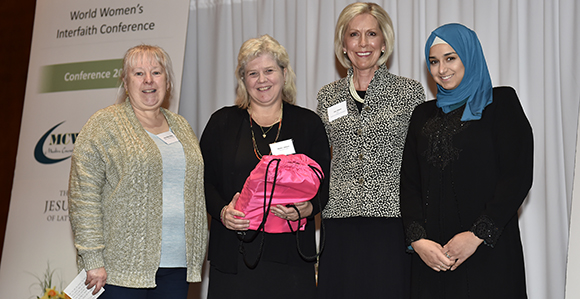
One hundred personal supply bags were donated to the charitable Samara’s Aid organization for displaced refugees in Syria and Iraq. Helen James received them in behalf of Samara’s Aid from conference speakers Christine Abbas (Bahai), Joy D. Jones (LDS), and Alaa Khundakji (Muslim).
Article Highlights
- People of faith must maintain the ability to love and serve others.
- Parents and leaders must teach children the value of service to others.
“I am convinced that when we unite together as women of faith, we not only strengthen the relationship between religions, but individual lives are touched as we reach out to those in need.” —Sister Jean B. Bingham, Relief Society General President
NEWPORT, WALES
Women—and men—of faith have the responsibility, as well as the blessing, of serving those in need, said Sister Jean B. Bingham, Relief Society General President.
“When doing so, we find that uniting in good works is not only beneficial to others but is ennobling to the soul,” she said.
Sister Bingham and Sister Joy D. Jones, Primary General President, joined other women of faith during the World Women’s Interfaith Conference at Celtic Manor in Newport, Wales, on February 9.
Local and international women’s leaders from Hindu, Muslim, Sikh, and Christian communities gathered to discuss “living faithfully in an increasingly secular world.” Speakers spoke on how their religious conviction has helped them navigate life in a positive way.
A choir of Primary children from Wales provided music for the event, singing “‘Give,’ Said the Little Stream” and finishing up with a Welsh song about Jesus.
“I was impressed with the articulateness of the women of other faiths who spoke,” said Sister Bingham after the event. “They humbly, yet confidently, shared their religion and how it has impacted their lives for good and how they reach out to help those in need.”
She and Sister Jones said it was important for LDS leaders to participate in the event “to share our faith and values, as well as to demonstrate our support for the good works of other women of faith.”
Addressing the topic “Coping as a Woman of Faith in a Secular World,” Sister Bingham said the faith groups represented at the conference share a desire to use their resources and work unitedly in a common cause.
“Yet in many ways, religion finds itself on the margins of society, where one’s beliefs and values may be expressed privately but are often dismissed publicly,” said Sister Bingham. “Conflicts sometimes arise when religious organizations or individuals share their views of right and wrong in the public sphere.”
Tension can be seen, for example, in rules sometimes banning religious clubs from colleges and universities, or in regulations curbing the conscience of health care practitioners, she explained. “Public figures and regular citizens often hesitate to articulate their religious values to avoid controversy.”
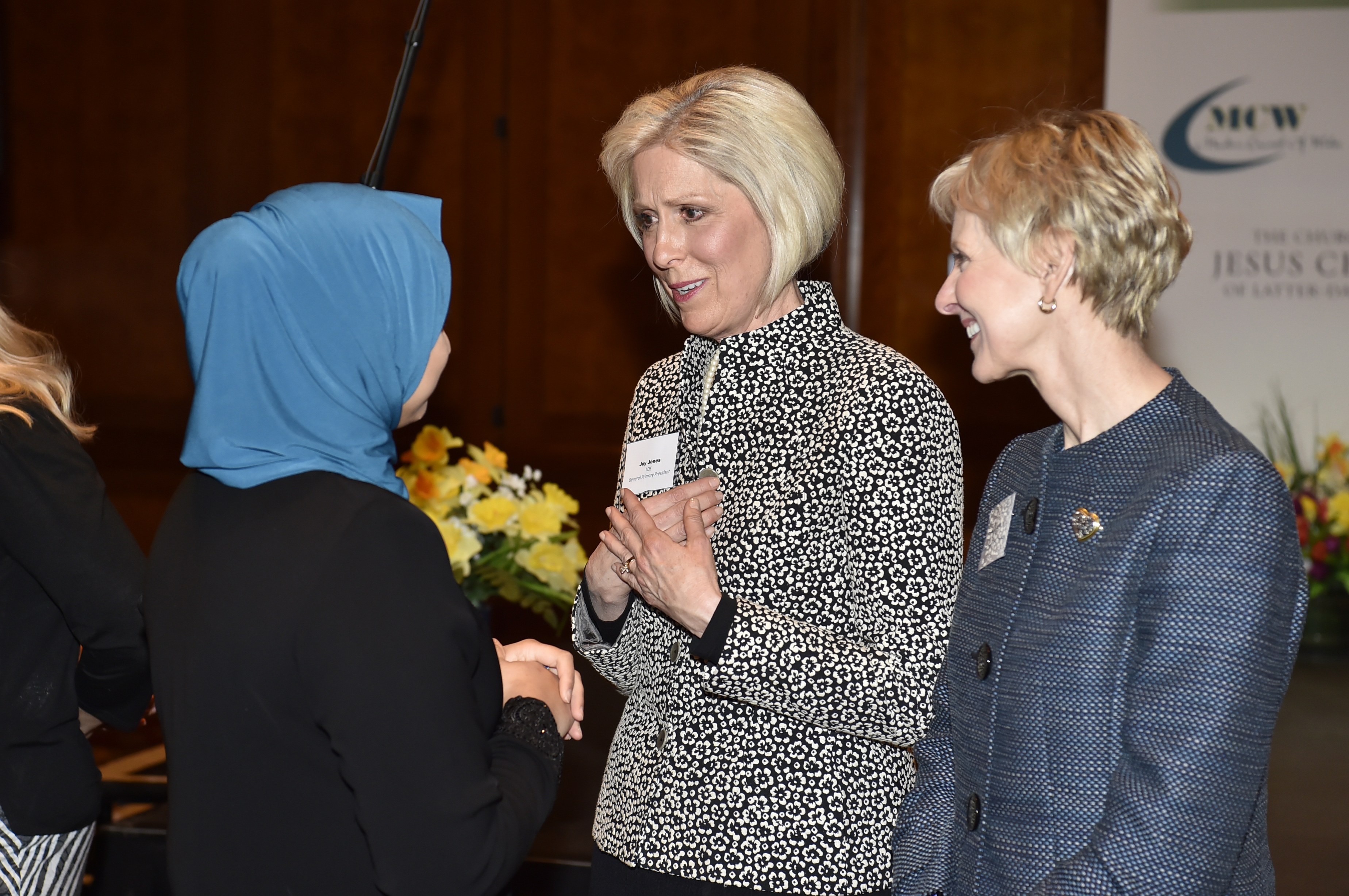
Sister Jean B. Bingham and Sister Joy D. Jones have a dialogue with a Muslim council member at the World Women’s Interfaith Conference 2018.
Then, answering the question posed in the theme, “How do we cope as women of faith in a secular world?” Sister Bingham said:
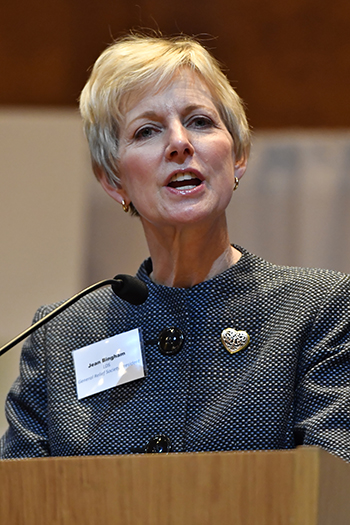
Sister Jean B Bingham, Relief Society General President, addresses the more than 300 guests at the World Women’s Interfaith Conference 2018.
“A woman of faith makes decisions based on her spiritual values and religious framework, not on the latest popular trends or political pronouncements.
“First, she needs to know what she believes and be able to articulate those beliefs and values to herself and others. Second, she acts on her beliefs and strives to live according to the highest and noblest virtues her belief system espouses. She is an example and a light to others through the clouds of uncertainty and darkness in the world around her.
“She also recognizes that others live by different faith systems and allows them to express themselves in ways consistent with their beliefs.”
The secular world dismisses religion as irrelevant in this modern, science-driven world, said Sister Bingham. “Yet studies corroborate what religious adherents instinctively feel: there is social value in allowing religious expression in the community.”
Citing the “Religious Faith and Charitable Giving” study by Arthur C. Brooks, Sister Bingham said the research has shown that more than 90 percent of those who attend weekly worship services donate to charity and nearly 70 percent volunteer for charitable causes.
“Religion and faith is part of who we are—as women, as men, as fellow humans, as children of God,” she said. “Despite pressure and ridicule from those who see no value in religion, people of faith must maintain the ability to love and serve others as our tenets teach and as our hearts desire. …
“I am convinced that when we unite together as women of faith, we not only strengthen the relationship between religions, but individual lives are touched as we reach out to those in need.”
In her remarks, titled “Serving with Those of All Ages,” Sister Jones said it is within the home—with children and parents together—that spiritual values are taught, exemplified, and reinforced most effectively.
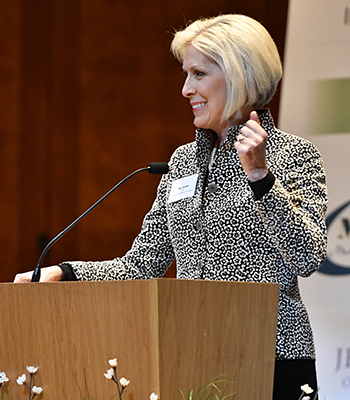
Sister Joy D. Jones, Primary General President, addresses the more than 300 guests at the World Women’s Interfaith Conference 2018.
“In a world that can often seem devoid of such values, parents and children grow when they seek to learn and apply these truths in a family setting,” she said. “The home is God’s mini-university for learning many of life’s lessons regarding relationships, sacrifice, and service to one another.”
Noting that all human being are created in the image of God, Sister Jones said, “We see every person on earth of equal, limitless value regardless of age. The value of a child is truly beyond measure, despite what his or her current circumstances may be.”
She told the audience that they share a “weighty responsibility to inspire the rising generation,” while recognizing that “children can teach us.”
“Young children frequently teach us simple and pure faith,” Sister Jones said. “They can be the first to love and the first to forgive. As we carefully and closely observe them and encourage them in their growth—whether as parents, teachers, or extended family—our learning increases, our understanding deepens.”
Parents and communities must be conscious of what they are teaching by example, she said. “The reality is that we’re inspiring greatness when we help children recognize their worth and support them in identifying their potential.”
Perhaps a most important teaching “in a society that emphasizes the selfie rather than being selfless” is the modeling of selfless behavior, Sister Jones said.
In a narcissistic world, parents and leaders must teach children the value of service to others, she said.
Religious leaders of all faiths throughout history have urged their followers to discover the blessings of putting another’s needs before their own, she explained.
“If we teach them, children can become selfless individuals who are much happier looking into the lives of others than they will ever be staring at their selfies. Service, of course, is part of that teaching. It is the perfect antidote to ego. Remember the acronym for ‘ego’ is ‘easing God out.’ Yet God is the very being who guides our efforts to serve humbly and sincerely.”
It is incumbent on society to teach the values of service, love, and compassion to children, she said. “We serve others and it changes us. We are never the same after even the smallest effort to help another. … My prayer is that we can recognize the inborn strength and potential of our little ones to love, to serve, and to lead. Each forward step we take together to touch a life will help to change the world for good.”
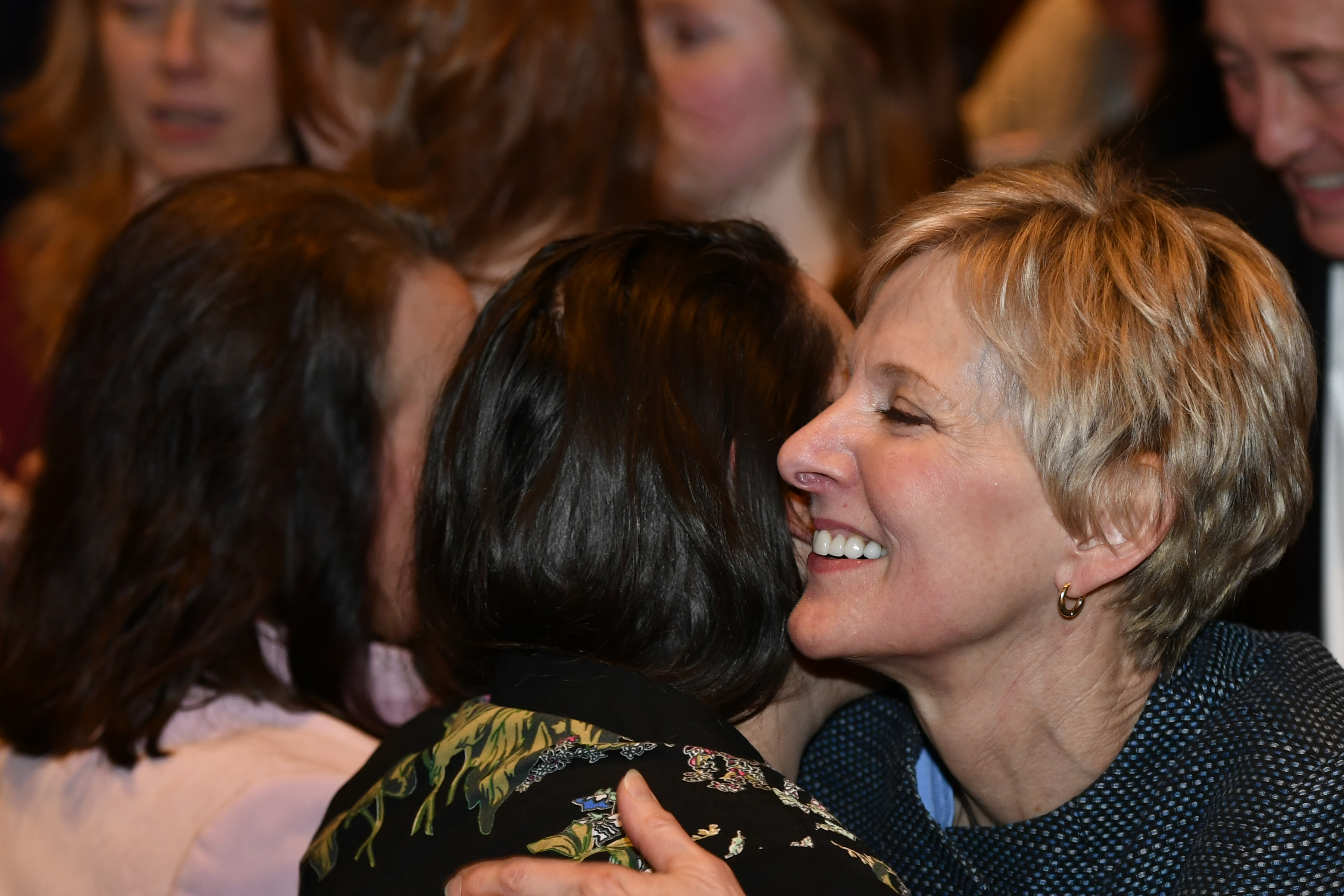
Sister Jean B. Bingham, Relief Society General President, greets a guest at the World Women’s Interfaith Conference 2018.
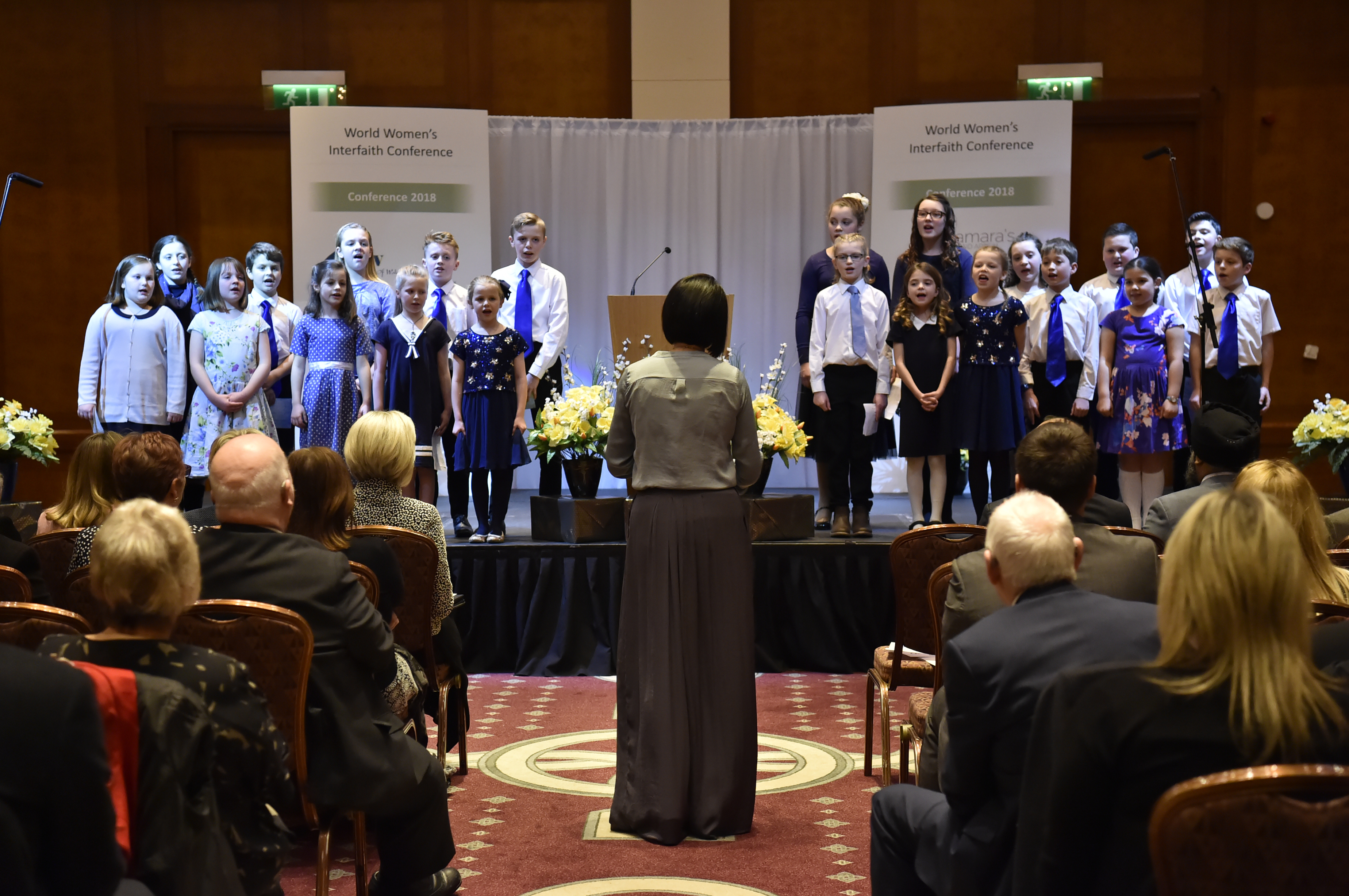
In Wales, historically well known for choirs, LDS Primary children sing at the World Women’s Interfaith Conference 2018.
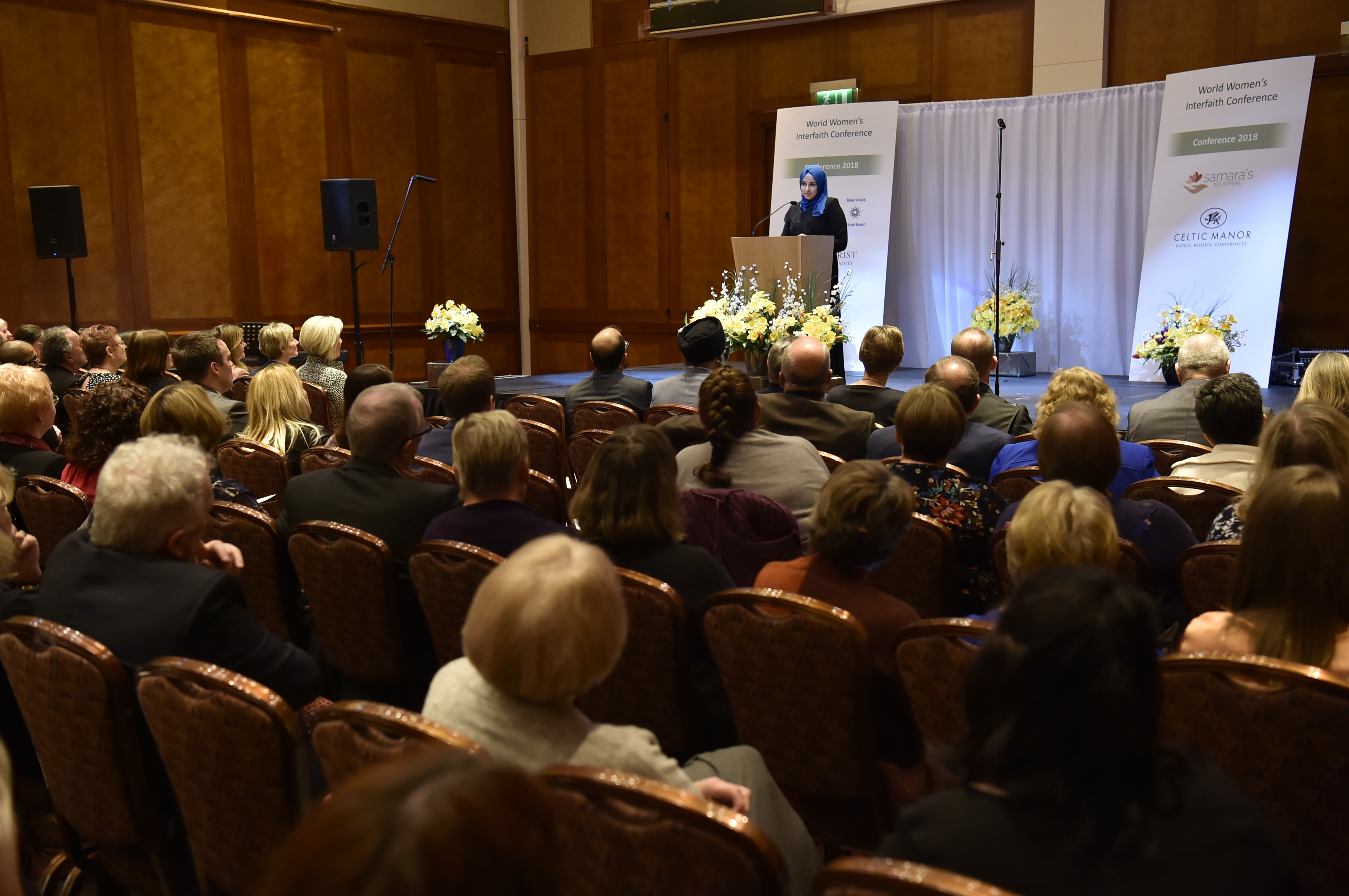
Alaa Khundakji of the Muslim Council of Wales addresses the World Women’s Interfaith Conference 2018.
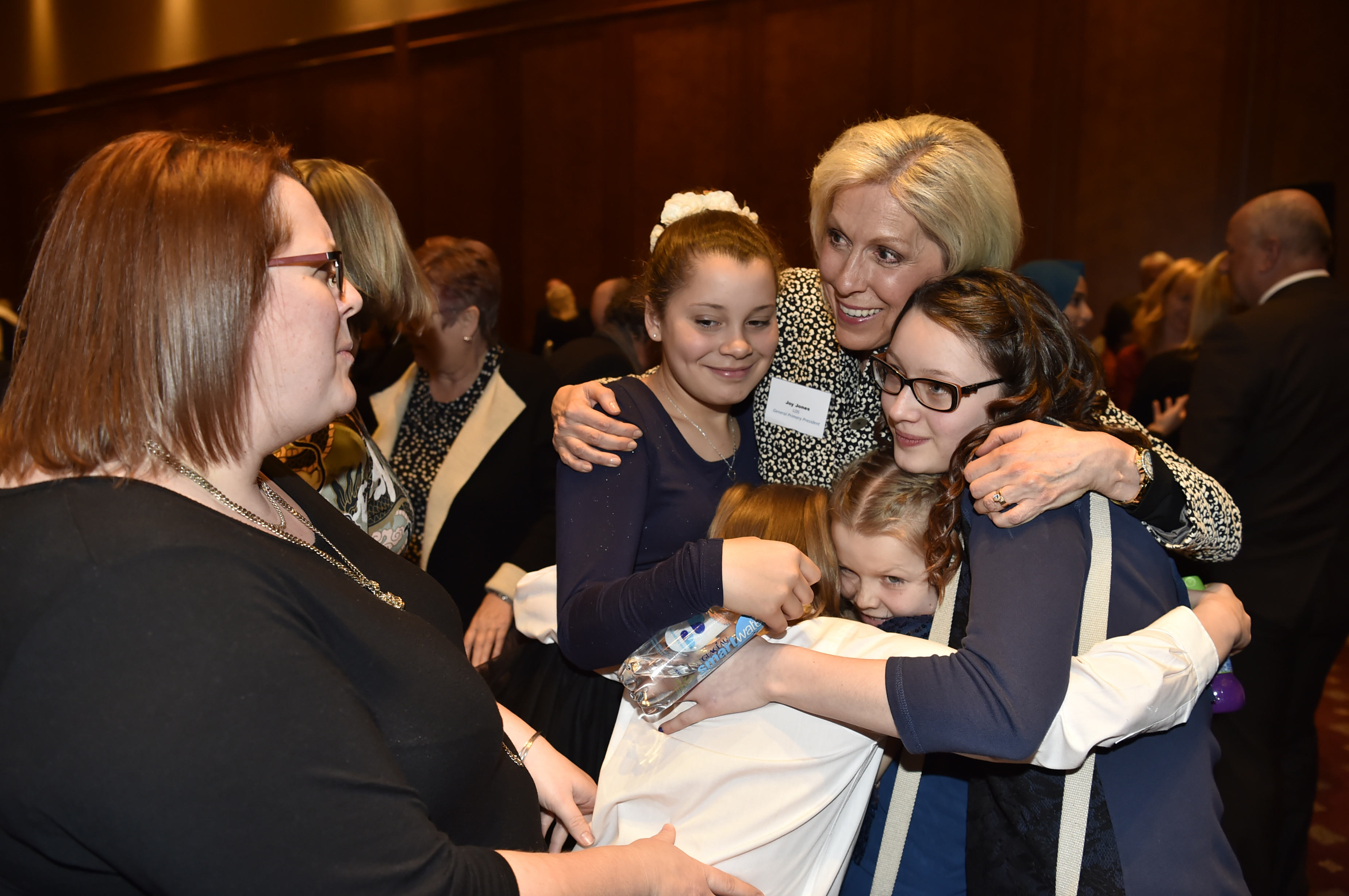
Sister Joy D. Jones, Primary General President, enjoys a tender moment with a few of the Primary choir children at the World Women’s Interfaith Conference 2018.
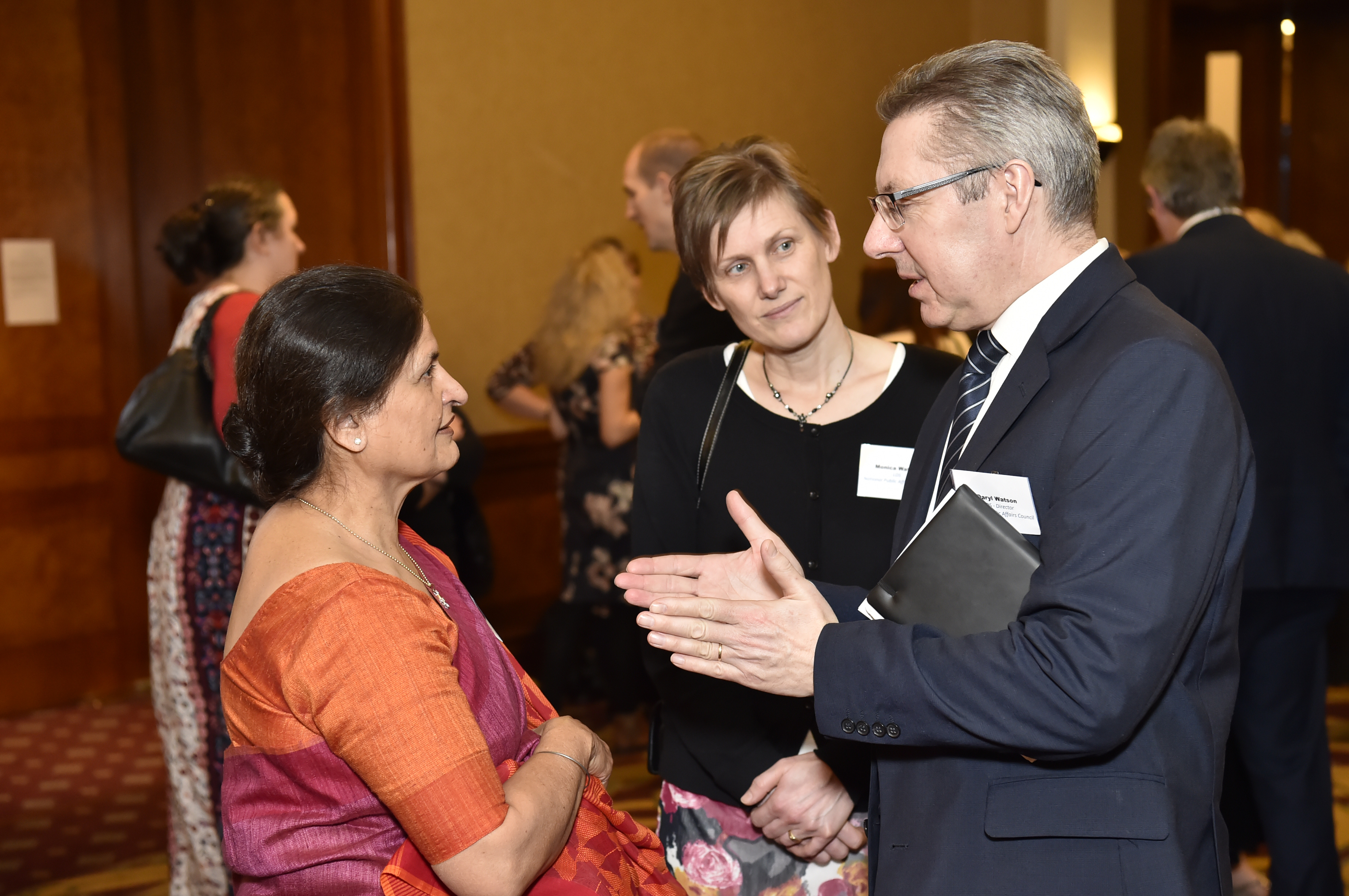
Public affairs leaders for the Church in Great Britain, Daryl and Monic Watson, greet conference speaker Dr. Surinder Narula, chair of the South Wales Sikh Association.
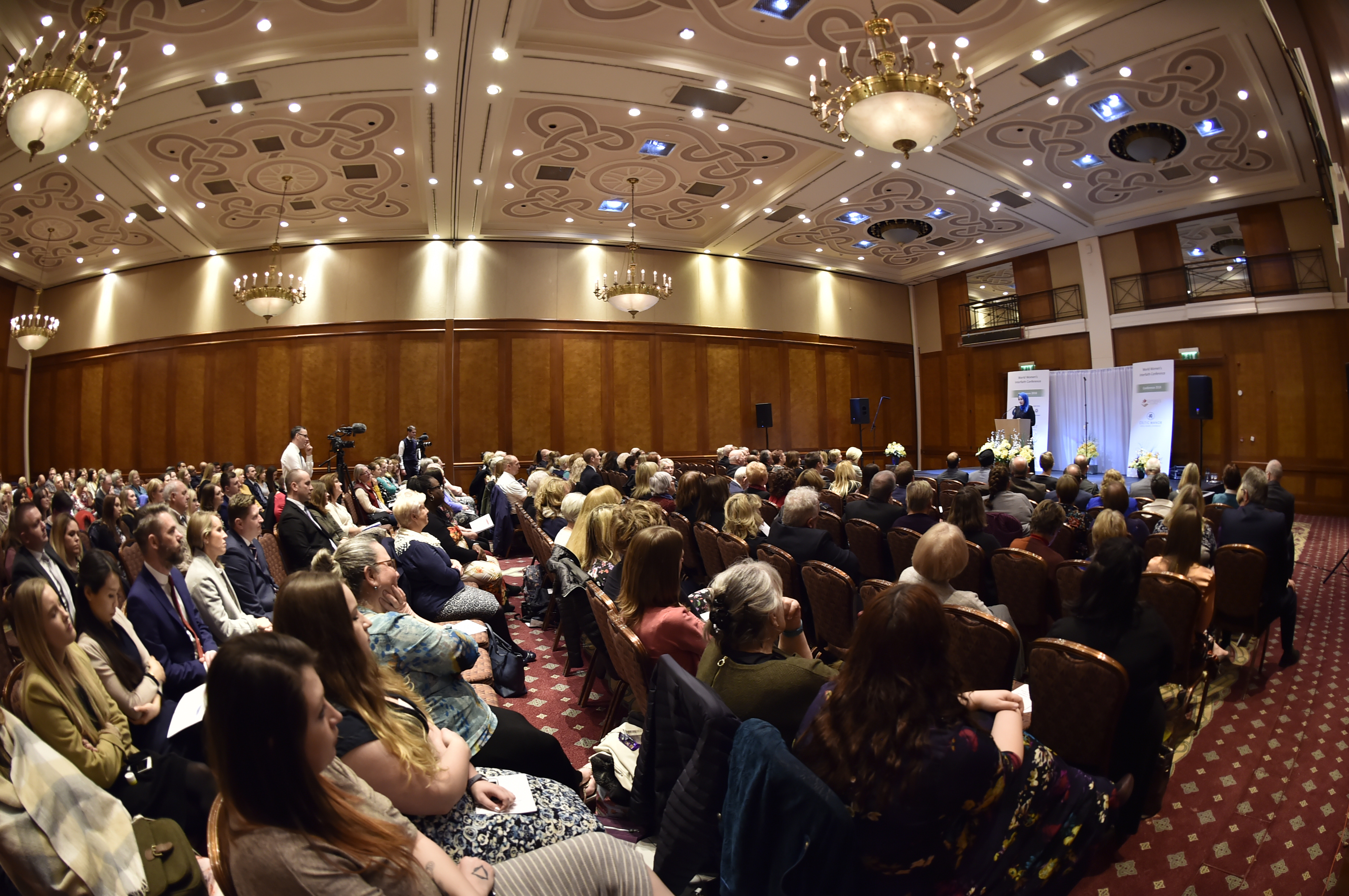
The World Women’s Interfaith Conference 2018 had more than 300 guests from many faiths including Muslims, Hindus, Sihks, Bahai, LDS, and spiritualists.
